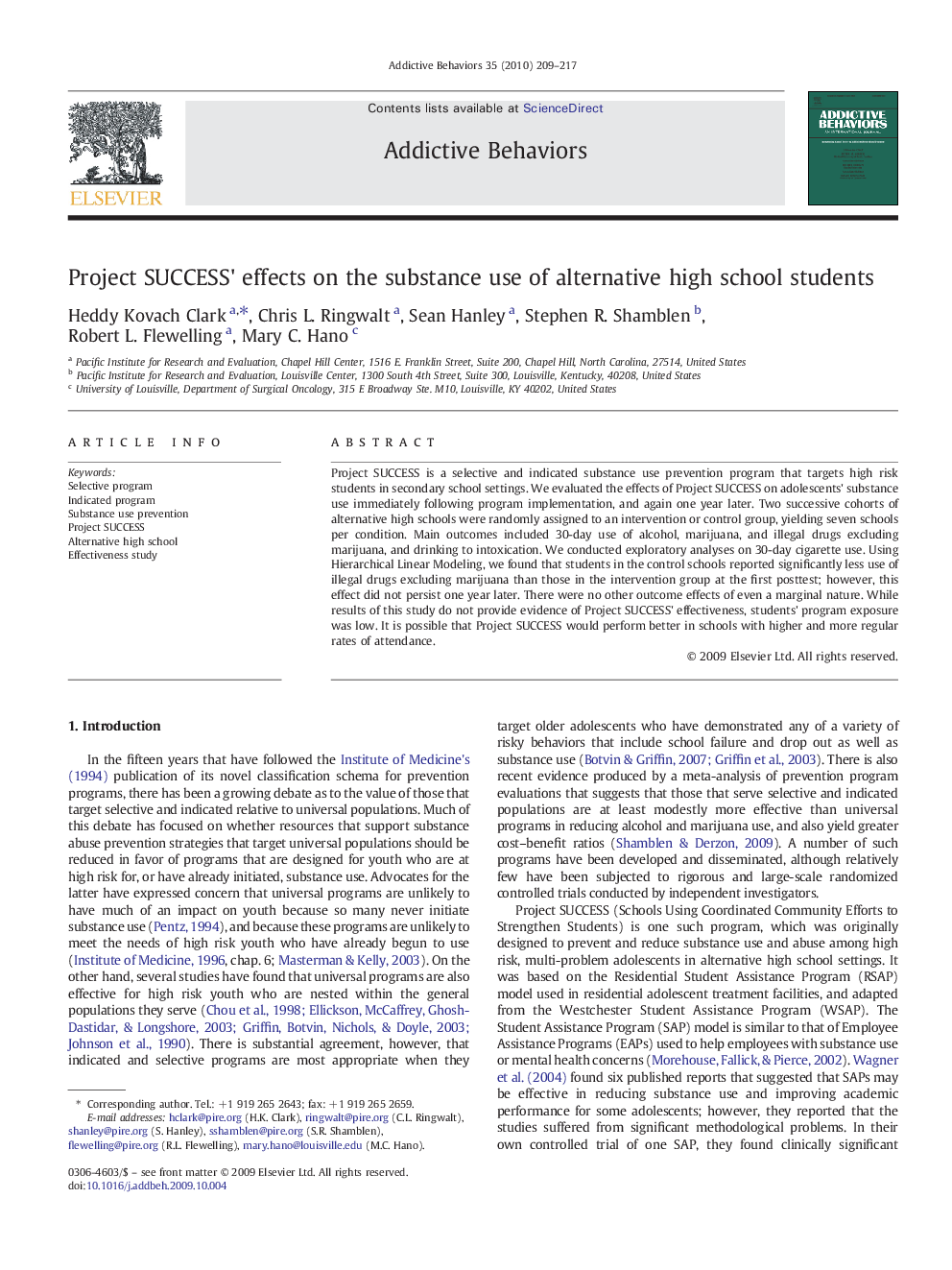| Article ID | Journal | Published Year | Pages | File Type |
|---|---|---|---|---|
| 899922 | Addictive Behaviors | 2010 | 9 Pages |
Project SUCCESS is a selective and indicated substance use prevention program that targets high risk students in secondary school settings. We evaluated the effects of Project SUCCESS on adolescents' substance use immediately following program implementation, and again one year later. Two successive cohorts of alternative high schools were randomly assigned to an intervention or control group, yielding seven schools per condition. Main outcomes included 30-day use of alcohol, marijuana, and illegal drugs excluding marijuana, and drinking to intoxication. We conducted exploratory analyses on 30-day cigarette use. Using Hierarchical Linear Modeling, we found that students in the control schools reported significantly less use of illegal drugs excluding marijuana than those in the intervention group at the first posttest; however, this effect did not persist one year later. There were no other outcome effects of even a marginal nature. While results of this study do not provide evidence of Project SUCCESS' effectiveness, students' program exposure was low. It is possible that Project SUCCESS would perform better in schools with higher and more regular rates of attendance.
